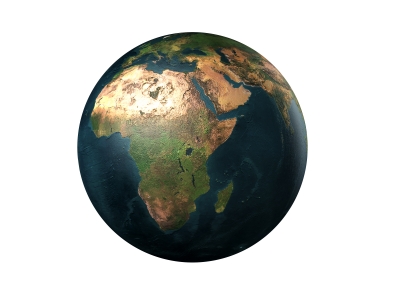For centuries now, Africa has been a wild and unknown place full of impenetrable jungles and steeped in mystery earning it the name the “Dark Continent”. Several countries in Africa including Kenya, Ghana, Nigeria, Congo, and Rwanda are embarking on ambitious projects to provide centers of upscale housing and high tech jobs in an effort to join the 21st century. Are these just “pipe dreams” or are they the wave of the future? ~Tim McMahon, editor
Africa’s ‘New Cities’

A glimpse of Africa’s urban future or utopian fantasies?
The jury might still be out, but these are the snapshots of urban life being touted by international property developers who are announcing plans for new satellite cities and vast modern compounds across Africa.
They are usually planned to be built from scratch on the edges of the continent’s existing metropolises, many of which are creaking under the weight of growing populations and rapid urbanization rates.
Konza – Kenya
Dubbed as “Africa’s Silicon Savannah,” Konza Techno City is the Kenyan government’s flagship mega-project designed to foster the growth of the country’s technology industry.
The multi-billion-dollar city, located on a 5,000-acre plot of land some 60 kilometers southeast of the capital Nairobi, aims to create nearly 100,000 jobs by 2030.
It will feature a central business district, a university campus, urban parks, and housing to accommodate some 185,000 people.
Appolonia, King City – Ghana
Designed by Rendeavour, the urban development branch of Moscow-based Renaissance Group, Appolonia and King City will be located in Greater Accra and Western Ghana respectively.
The mixed-use satellite cites are expected to accommodate more than 160,000 residents on land developed for housing properties, retail and commercial centers, as well as schools, healthcare, and other social amenities.
Rendeavour says that all baseline studies, master plans, and detailed designs have been completed and approved, while basic infrastructure work in Appolonia is expected to begin in the third quarter of 2013.
Ko Atlantic – Nigeria
Eko Atlantic is a multi-billion dollar residential and business development that will be located on Victoria Island in Lagos, along its upmarket Bar Beach coastline.
The ambitious project is being built on 10 square kilometers of land reclaimed from the Atlantic Ocean.
Eko Atlantic is expected to provide upscale accommodation for 250,000 people and employment opportunities for a further 150,000.
Tatu City – Kenya
Also being developed by Rendeavour, Tatu City will span 1,035 hectares of land some 15 kilometers from Nairobi.
It is designed to create a new decentralized urban center to the north of the bustling Kenyan capital.
Construction work began last May and the whole project is projected to be completed in 10 phases by 2022. When finalized, the mixed-use satellite city is expected to be home to 77,000 residents.
La Cite du Fleuve – Democratic Republic of Congo
La Cite du Fleuve is a luxurious housing project planned for two islands on the Congo River in Kinshasa, the capital of the Democratic Republic of Congo and one of Africa’s fastest-growing cities.
Developer Hawkwood Properties plans to reclaim about 375 hectares of sandbanks and swamps to build thousands of riverside villas, offices and shopping centers over the next 10 years.
It says that more than 20 hectares of land have already been reclaimed.
Hope City – Ghana
Hope City is a US$10 billion high-tech hub that will be built outside Accra, aiming to turn Ghana into a major ICT player.
The planned hub, which is hoped will house 25,000 residents and create jobs for 50,000 people, will be made up of six towers of different dimensions, including a 75-story, 270 meter-high building that is expected to be the highest in Africa.
Ghanaian company RLG Communications is financing 30% of the project, while the remainder will be funded by a wide array of investors and through a stock-buying scheme.
Its sustainable facilities will include an assembly plant for various tech products, business offices, an IT university, and a hospital, as well as restaurants, theaters, and sports centers.
Kigali – Rwanda
The capital and biggest city of Rwanda has launched an ambitious urban development plan to transform itself into the “center of urban excellence in Africa.”
Watch this: Kigali’s vision for 2020
The bold and radical 2020 Kigali Conceptual Master Plan includes all the hallmarks of a regional hub for business, trade, and tourism.
It envisages Singapore-like commercial and shopping districts boasting glass-box skyscrapers and modern hotels, as well as green-themed parks and entertainment facilities.
This article was originally published in Live & Invest Overseas and was reprinted by permission.
Image courtesy of Salvatore Vuono/ FreeDigitalPhotos.net.
